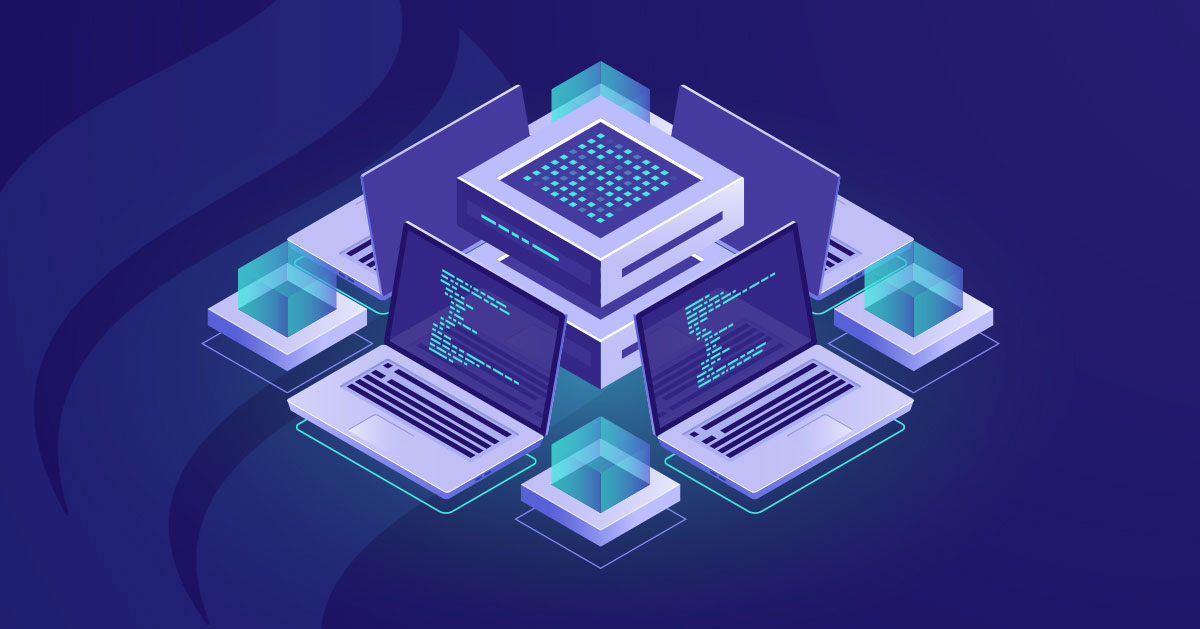What Does the Future of Data Science Hold?
GRADUATE STUDIES | 5 MIN READ

The world today is data-driven, and the future of data science is growing. Even when you account for the Earth’s entire population, the average person is expected to generate 1.7 megabytes of data per second by the end of 2020, according to cloud vendor Domo.
The scale of big data is truly astounding, and it has already intertwined itself in core aspects of personal and business life. Consumers are becoming more aware of their data privacy rights and data habits, while companies have leveraged such intel to great effect.
A dominant theme today and going forward, big data is poised to play an influential role in the future. Data will define modern health care, government, finance, business management, marketing, energy and manufacturing. That means skilled talent will be needed across these industries to meet the challenges of data analytics and help innovate improvements in products, services and society.
Getting a graduate education can help you better prepare for the demands of being a data scientist and data analytics at large, while also positioning you to take on what the future of data science holds.
Data Science Jobs Grow as Businesses Prioritize Tech and the Future of Data Science
IT-focused jobs have grown with the increasing importance of technology. The Bureau of Labor Statistics anticipates computer and information technology jobs will grow 13 percent between 2016 and 2026, above the average rate for all occupations. Yet data science careers have seen the most explosive growth.
Data scientist roles have grown more than 650 percent since 2012, according to an analysis on LinkedIn. The position has since become one of the most in-demand jobs, ranking No. 2 behind machine learning engineer (a data scientist-adjacent job) among top emerging professions.
What’s feeding the high demand for data scientists? Mostly businesses’ appetites for big data. Chief information officers—those executives in charge of IT decision-making—responding to a 2018 Gartner survey said analytics and business intelligence solutions were the most critical technologies for reaching company objectives. As a result, they consistently ranked data skills as the most sought-after quality in talent.
AI and Machine Learning Lead the Way
Among the most impactful technologies data scientists will encounter is artificial intelligence, or AI. Far from being an “out-there” concept from sci-fi novels, AI is already improving business operations today and promises to be a major trend in the near and long term.
In the practical sense, AI is using automated solutions to scour immense data sets for insights into how to make better business decisions. AI can be a key differentiator for businesses today. According to a 2018 Deloitte survey:
- 65 percent of business believe AI put them past the competition
- 27 percent believe AI helped them slightly edge out competitors
- 28 percent believe AI helped them widen a lead over competitors
- 9 percent believed AI helped them leapfrog competitors entirely
The realization of these advantages has driven the adoption of other AI applications such as machine learning and deep learning, the true future of data science. Machine learning is the “ability of statistical models to develop capabilities and improve their performance over time without the need to follow explicitly programmed instructions.” It goes beyond the bounds of basic automation to deliver greater insight.
This principle can be seen in AlphaZero, the chess machine developed by Google’s DeepMind unit. Where AlphaZero improves on its other computerized chess-playing peers is in how it learns from its actions to reach the most desired outcome. In a recent scientific review of the machine, AlphaZero was observed declining the opportunity to take opponent pieces to instead set up better positioning, a behavior not seen in the more “brute force” AI machines that preceded it. It has never lost in the 100 games it simulated with the premier AI chess engine to date.
The Road to Becoming a Data Scientist
While businesses are integrating AI and data-heavy technologies at a high rate, they’re often met with obstacles in finding the talent to help guide those initiatives. Nearly half of the CIOs in a Gartner survey said they were in the market for employees with AI skills, yet 37 percent of those same respondents found such qualifications hard to recruit. In fact, slowed hiring for AI was cited as the biggest barrier to adoption in an MIT Technology Review and EY study. About 80 percent of respondents said they lacked the needed skills to manage AI programs.
More data scientists are needed to answer this shortage, and for many, the career pathway begins as a software engineer. The role was linked to many of the data scientist jobs identified by LinkedIn, showing up in the resumes of machine-learning engineers, data scientists and big data developers. Getting a graduate degree, or a certificate of graduate studies, can help you build the skills and knowledge needed to approach the behemoth that is big data.
No matter what background you possess, you can attend a program at Elmhurst University to gain insight into concepts like machine learning, data warehousing, quantitative analysis and predictive analytics. Our graduates range from senior customer analytics managers and data engineers to senior software fellows and principal consultants.
Ready to Be a Part of the Future of Data Science?
If you would like to learn more, simply fill in the form below!


